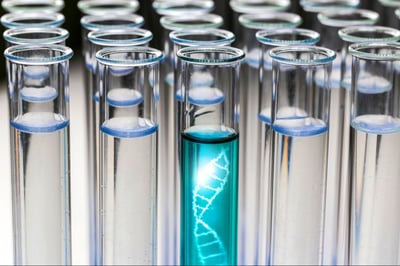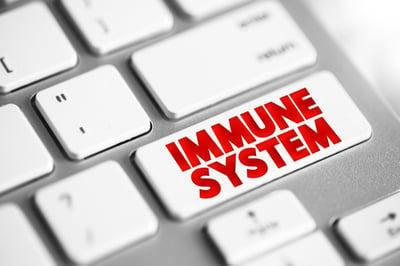Hereditary Cancer



Relevance: High
Most relevant for: People with BRCA1 or BRCA2 mutations
Study: Mutations in BRCA1 or BRCA2 may increase risk for endometrial cancer
A Dutch study added further evidence that women with a BRCA1 mutation may have an elevated risk for endometrial cancer. The study found that the endometrial cancer in women with either a BRCA1 or BRCA2 mutation was more likely to be an aggressive form of cancer associated with a poor outcomes. (posted 11/30/21)
Este artículo está disponible en español.
READ MORE ›


Relevance: Medium-Low
Most relevant for: People considering a liquid biopsy to screen for cancer
Update: Blood tests called liquid biopsies for cancer screening, monitoring and treatment
Could a simple blood test change cancer detection, treatment and monitoring? Several companies are offering a type of blood test known as a liquid biopsy to detect multiple cancers at their earliest stages, monitor response to treatment and help choose the best treatment. Although progress has been made using liquid biopsies to treat cancer, these tests have not yet been shown to detect cancer early enough to save lives. (posted 9/29/21)
Este artículo está disponible en español.
READ MORE ›


Relevance: Medium
Most relevant for: Healthy people with an average colorectal cancer risk
Study: Do sugared beverages increase the risk of early-onset colorectal cancer?
A study of female nurses in the U.S. suggests that a high intake of sugar-sweetened beverages may increase the risk of colorectal cancer before age 50. However, researchers saw few early-onset colorectal cancer cases which limited the findings. (posted 9/21/21)
Este artículo está disponible en español.
READ MORE ›


Relevance: High
Most relevant for: Non-Hispanic Black and white women with breast cancer
Study: Frequency of inherited mutations linked to breast cancer are similar in Black and white women
The CARRIERS study looked at the rate of inherited mutations in women with and without breast cancer. In an extension of the CARRIERS study, researchers found no difference in the frequency of inherited mutations in breast cancer genes among Black and white women with breast cancer. A few individual genes differed in frequency: BRCA2 and PALB2 mutations were seen more often in Black women, while CHEK2 mutations were seen less often. Researchers concluded that race should not be used to determine who is referred for genetic testing. (posted 8/13/21)
Este artículo está disponible en español.
READ MORE ›


Relevance: High
Most relevant for: people with inherited PALB2 mutations
Study: Cancer risks of people with inherited PALB2 mutations
In the largest study of people with inherited PALB2 mutations to date, the gene was linked to increased lifetime risk of breast cancer in women and men, ovarian and pancreatic cancer but not prostate or colorectal cancer. (posted 7/1/21)
Este artículo está disponible en español.
READ MORE ›


Relevance: High
Most relevant for: People concerned about endometrial, ovarian or breast cancer risk
Study: Birth control pills may offer long-term protection against endometrial and ovarian cancer
A large study showed that birth control pills may protect against endometrial and ovarian cancers, even years after use was discontinued. (posted 6/1/21)
Este artículo está disponible en español.
READ MORE ›


Relevance: Medium
Most relevant for: Patients with non-metastatic triple-negative breast cancer at high risk of recurrence.
Update: FDA allows testing of a vaccine designed to prevent breast cancer
Scientists have been working for many years to develop a vaccine that will prevent breast cancer. The FDA recently announced that the first clinical trial to test a preventive breast cancer vaccine can begin. This vaccine is the result of over a decade of research in animals and human cells. While researchers will first test the vaccine in women who have breast cancer, they hope to use this vaccine in the future to prevent breast cancer. (posted 5/25/21)
THIS INFORMATION HAS BEEN UPDATED on 10/12/2021: The clinical trial discussed in this XRAY review has begun recruiting participants. Researchers hope to enroll 24 patients with non-metastatic triple-negative breast cancer. The trial is being conducted at the Cleveland Clinic in Cleveland, Ohio. More information on this trial can be found here.
Este artículo está disponible en español.
READ MORE ›


Relevance: High
Most relevant for: People with Lynch syndrome
Study: Daily high-dose aspirin taken for at least 2 years reduces the risk of colorectal cancer but not other cancers in people with Lynch syndrome
Research has shown that daily aspirin use can reduce the risk of colon and other cancers. The Cancer Prevention Program 2 (CaPP2) study looked at the effect of daily aspirin in patients with Lynch syndrome. After 10 years of follow-up, the results showed that taking daily aspirin for two years reduced the frequency of colon cancer in patients with Lynch syndrome, and importantly, did not result in an increase in side-effects or complications. No benefit was seen for other Lynch syndrome-related cancers, including endometrial cancer. (5/17/21)
Este artículo está disponible en español.
READ MORE ›


Relevance: Medium-High
Most relevant for: African Americans concerned about colorectal cancer
Update: Cancer disparities: Colorectal cancer in African Americans
The American Association for Cancer Research (AACR) released a 2020 report about cancer disparities among racial and ethnic groups in the United States. In this XRAY review, we highlight data from the report about the burden of colorectal cancer in African Americans, who have the highest rates of diagnosis and death related to the disease among all racial and ethnic groups. (Posted 4/27/21)
Este artículo está disponible en español.
READ MORE ›


Relevance: Medium-High
Most relevant for: Women considering mastectomy without breast reconstruction.
Study: Patient outcomes and experiences of going flat
Some patients with early-stage breast cancer or those considering risk-reducing surgery may choose mastectomy without reconstruction. This is often referred to as “going flat.” The results of this study suggest that surgeons play a significant role in supporting a patient’s decision to go flat. (3/23/2021)
Este artículo está disponible en español.
READ MORE ›